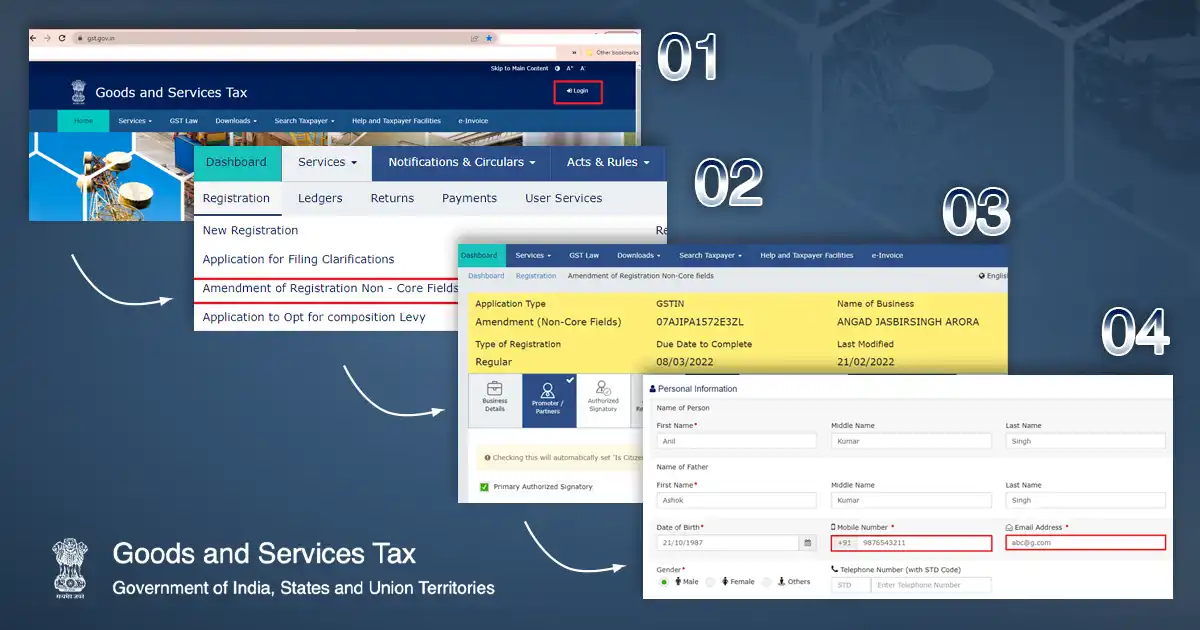
Introduction
Tracking your Flipkart seller registration application status online is a crucial step for businesses to ensure a hassle-free onboarding experience. Whether you’re a new seller aiming to expand your business on Flipkart or an established one updating your credentials, the GST portal India provides an efficient way to check your application updates and verify your GST status. A valid GST registration compliance ensures seamless tax filing, invoicing, and eligibility to sell on Flipkart.
By utilizing GST ARN tracking, applicants can keep a close watch on their GST application status and ensure there are no delays that might impact their business operations. This guide provides an in-depth walkthrough on how to efficiently track your Flipkart seller registration status and stay compliant with GST status verification.
Also Read: File Consumer Complaint Against Flipkart Get Refund | RegisterKaro
Why Sell on Flipkart?
Selling on Flipkart opens up a vast marketplace for businesses, allowing them to reach millions of customers across India. With streamlined logistics, secure payments, and a well-established infrastructure, Flipkart seller registration is one of the best ways to scale your business. However, to take full advantage of this e-commerce platform, ensuring GST registration compliance is essential. Flipkart mandates that all registered sellers possess a valid GSTIN, and sellers must monitor their application updates via the GST portal India to ensure a smooth registration process.
Key Benefits of Selling on Flipkart:
- Massive Customer Base: Reach a wide audience across different regions in India.
- Seamless Logistics: Flipkart provides shipping solutions, reducing the burden on sellers.
- Easy Payment Settlements: Secure and timely payments directly to your bank account.
- Marketing and Promotions: Boost visibility with Flipkart’s advertising solutions.
- GST Status Verification: Keep track of your GST registration and tax compliance effortlessly.
Eligibility Criteria for Flipkart Seller Registration
To become a seller on Flipkart, businesses must meet specific criteria and successfully complete the Flipkart seller registration process. One of the most critical aspects of eligibility is obtaining a valid GSTIN, ensuring compliance with GST registration compliance norms. By regularly checking application updates through GST ARN tracking, sellers can avoid unnecessary delays.
Key Eligibility Requirements:
- Business Entity: Individuals, sole proprietors, private limited companies, or partnership firms are eligible.
- GSTIN Requirement: A valid GSTIN is mandatory for selling taxable goods and services.
- Bank Account: A business or personal bank account is required for receiving payments.
- KYC Documents: PAN card, Aadhaar card, and address proof for identity verification.
- GST Status Verification: Sellers must track their application updates via the GST portal India to ensure compliance.
Step-by-Step Process to Track Flipkart Seller GST Registration Status
Ensuring GST registration compliance and tracking application updates is essential for a smooth onboarding process. Below is a step-by-step guide on how to track your GST registration status online.
Step 1: Visit the GST Portal India
- Go to the official GST portal India.
- Click on “Services” > “Registration” > “Track Application Status”.
Step 2: Enter Your ARN or GSTIN
- If you have applied for GST, enter your Application Reference Number (ARN) to track the status.
- If you already have a GSTIN, enter it for GST status verification.
Step 3: Check Application Updates
- The portal will display the current status of your GST application.
- If the status is pending, check for any missing documents or verification steps.
- If approved, you can proceed with Flipkart seller registration.
Step 4: Download GST Certificate
- Once approved, download your GST registration certificate.
- Upload this certificate on Flipkart’s Seller Hub to complete the registration process.
Documents Required for Flipkart Seller Registration
To successfully complete the Flipkart seller registration process, sellers must submit several key documents. These documents not only facilitate smooth registration but also ensure GST registration compliance. By monitoring application updates on the GST portal India, sellers can stay informed about their verification status.
Mandatory Documents:
- GSTIN Certificate – Required for tax compliance and invoicing.
- PAN Card – Essential for tax-related documentation.
- Aadhaar Card – Used for identity verification.
- Bank Account Details – A canceled cheque or bank statement is required.
- Business Address Proof – Utility bill, rent agreement, or business registration certificate.
GST Compliance for Flipkart Sellers
Ensuring GST registration compliance is a vital aspect of being a Flipkart seller. Without a valid GSTIN, sellers cannot legally list and sell taxable goods on the platform. Staying updated on application updates through the GST portal India helps sellers avoid penalties and business disruptions.
Key Aspects of GST Compliance:
- GSTIN Requirement: Mandatory for tax filing and compliance.
- GST ARN Tracking: Monitor application progress and prevent unnecessary delays.
- Invoice Compliance: Every sale must include a GST-compliant invoice.
- Filing GST Returns: Sellers must file monthly or quarterly GST returns based on applicable GST slabs in India.
- GST Status Verification: Regularly check the GST portal India for updates and ensure all records are accurate.
Tips for a Successful Flipkart Business
Running a successful business on Flipkart requires more than just completing your Flipkart seller registration. Proper planning, adherence to GST registration compliance, and using the right strategies will help maximize sales and revenue.
Key Tips for Success:
- Complete Registration & Compliance
- Use GST ARN tracking to monitor your application status.
- Ensure all documents are correctly uploaded for faster verification.
- Optimize Product Listings
- Use high-quality images and write compelling product descriptions.
- Research pricing trends and offer competitive rates.
- Stay GST Compliant
- Regularly verify your GST status verification through the GST portal India.
- File GST returns on time to avoid penalties.
- Offer Fast Shipping & Good Customer Service
- Ensure quick deliveries to build a good reputation.
- Respond to customer inquiries and resolve issues proactively.
- Leverage Flipkart Promotions
- Participate in Flipkart’s sales events and ad campaigns.
- Use Flipkart’s Seller Hub tools to analyze performance and improve sales strategies.
Conclusion
Successfully starting and growing your business on Flipkart begins with a smooth Flipkart seller registration process and ensuring GST registration compliance. Sellers must complete their GST registration to avoid legal complications and enable seamless tax filing. Keeping track of application updates through GST ARN tracking is crucial to prevent unnecessary delays and stay informed about the status of your registration. The GST portal India provides an efficient and user-friendly interface for GST status verification, helping sellers check their registration progress and ensure compliance with tax regulations.
By staying updated on GST requirements and diligently following the registration process, sellers can establish a strong foundation for their business while avoiding penalties or disruptions. A well-executed Flipkart seller registration not only ensures legal adherence but also enhances credibility, making it easier to attract customers and scale operations efficiently.
Don’t let compliance hurdles slow down your journey to success! Simplify your Flipkart seller registration with expert assistance from RegisterKaro. Our team will guide you through GST ARN tracking, GST registration compliance, and GST status verification, ensuring a hassle-free experience.
Frequently Asked Questions
A: Yes, a valid GSTIN is required to ensure GST registration compliance for selling on Flipkart.



